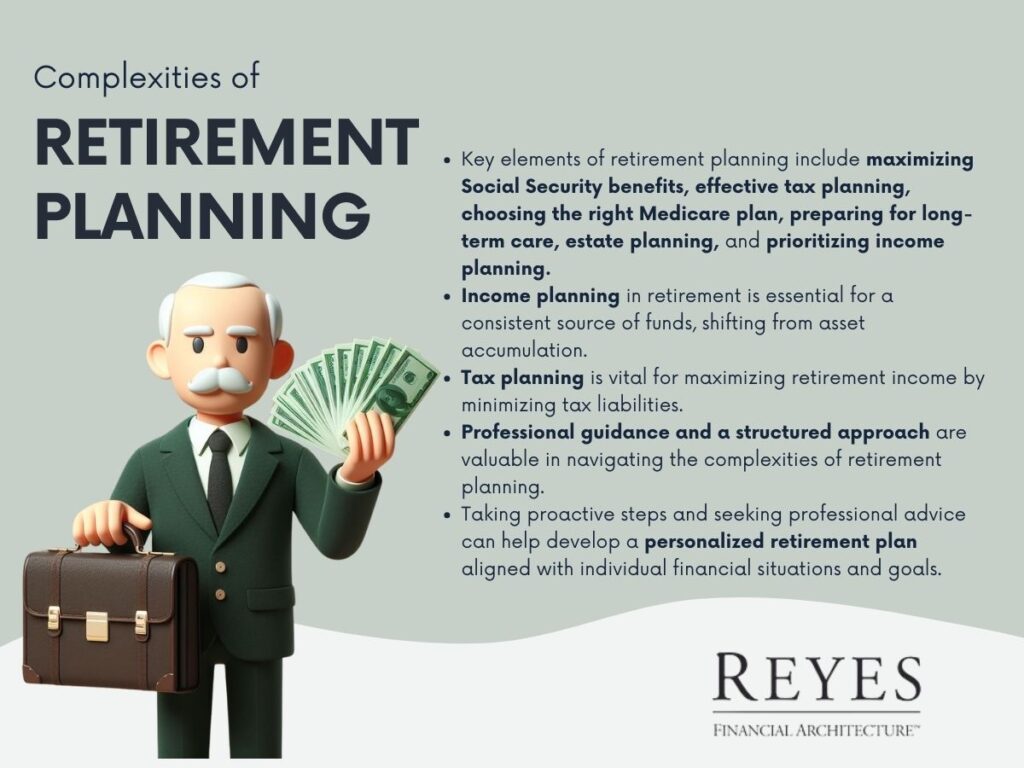Retirement planning is an essential aspect of financial management, requiring careful thought and preparation. It involves considering various elements that contribute to a financially secure and comfortable retirement. This guide provides insights into the key components of a successful retirement plan.

1. Maximizing Social Security Benefits
Understanding the right time and strategy to claim Social Security benefits is crucial for optimizing retirement income.
2. Effective Tax Planning
Strategic tax planning can significantly enhance retirement income by reducing tax burdens. This includes planning for tax-efficient withdrawals from retirement accounts.
3. Medicare and Health Coverage
Choosing the right Medicare plan and understanding its costs are essential for maintaining health coverage in retirement without exhausting savings.
4. Preparing for Long-Term Care
Anticipating and planning for long-term care needs helps protect savings and ensures adequate healthcare in later years.
5. Estate Planning and Living Trusts
Proper estate planning, including the establishment of living trusts, is vital for asset management and protection, both during and after one’s lifetime.
6. Prioritizing Income Planning
Unlike the asset accumulation phase, retirement planning focuses on generating a steady income to support retirement living, necessitating a shift in financial strategy.
In retirement, ensuring a continuous income stream is more critical than focusing solely on asset growth. Income planning is about creating a strategy that provides a reliable and consistent source of funds throughout retirement.
Effective tax planning is key in retirement for maximizing income by minimizing tax liabilities. Understanding the tax implications of retirement withdrawals and investment incomes is fundamental in achieving a more financially secure retirement.
Retirement planning is a multifaceted endeavor, encompassing everything from income generation to healthcare planning and estate management. Each component plays a crucial role in building a comprehensive retirement plan that caters to personal needs and financial goals. A structured approach, along with professional guidance, can be invaluable in navigating the complexities of retirement planning.
For those nearing retirement, it’s important to take proactive steps in planning. Seeking professional advice can be beneficial in developing a personalized retirement plan that aligns with individual financial situations and goals.